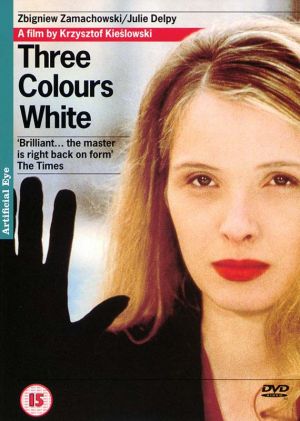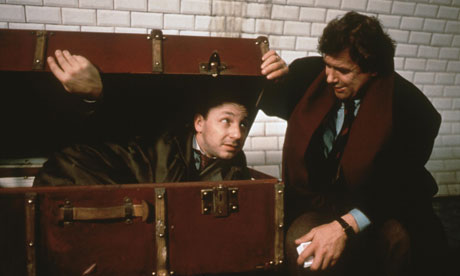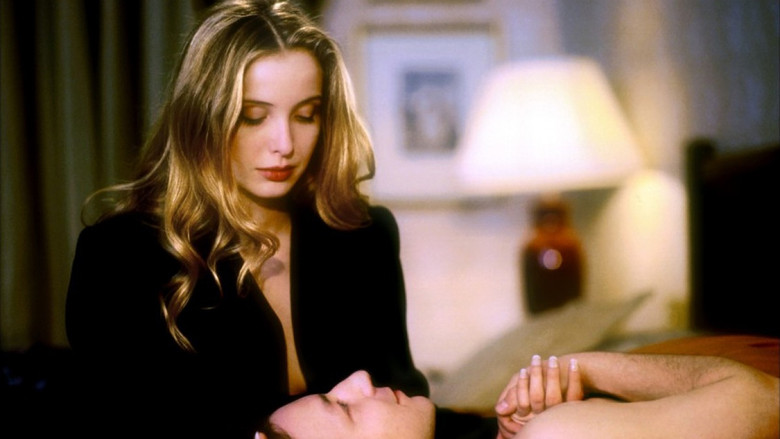My Writings

Review - Three Colours White (1994)
When she failed the audition for The Double Life of Veronique, and then turned down the lead in Three Colours Blue, Julie Delpy was very happy to subsequently be offered the role of Dominique in a third movie by the same director. She was typically excellent as the French wife of a Polish hairdresser Karol Karol (Zbigniew Zamachowski) whose marriage hits the rocks when they re-locate to Paris. Humiliation is a recurring theme in Kieslowski movies, although this film is supposed to be more representative of the middle one of the French Revolutionary ideals, Equality - following Blue (Liberty) and ending with Fraternity in Three Colours Red. The opening scene at the divorce courts is explained by a subsequent scene in Dominique's salon soon afterwards - Karol cannot consummate the marriage, and both parties are left humiliated. Feeling cornered, Dominique reacts savagely, and it is Karol who ends up almost penniless in the Parisian subway, desperate to return to Poland.
Latest Works

Although Zamachowski is good and is on screen almost all the time, Julie Delpy rescues the film because whilst the original intention was for her character to be cold and unlikeable, she gives the character hidden warmth and layers, and we begin to see that her actions are not because she is contemptuous but because she lacks empathy. We miss her when she is off screen, as does Karol, who befriends Mikolaj (Janusz Gajos), a fellow Pole who is in Paris for a bridge tournament. Mikolaj helps him get home to Warsaw in a plan that could only have been devised after drinking lots of vodka.

Back on familiar territory, Karol soon starts to make money again and begins to formulate a plan to force Dominique to come back to Poland. The plot keeps us guessing as to whether this is a move motivated by revenge, or by a desperate attempt to win her back, and we, like Karol, are very unsure as to what Dominique's reaction will be when she arrives.
This is an intriguing movie, almost a light black-comedy, that will be a favourite for all fans of the lead actress. There are some excellent scenes - in a railway tunnel, drinking vodka at a farmhouse, and at a funeral, but it is the scenes with Delpy in that remain the longest - her shock when she sees Karol in her hotel room, a contemptuous wave outside the courtrooms, and in the final scene where she makes a promise using sign language, and Dominique and Karol finally gain equality.
8/10 Delpy Heaven
Review written by John Franklin : November 2011
back...